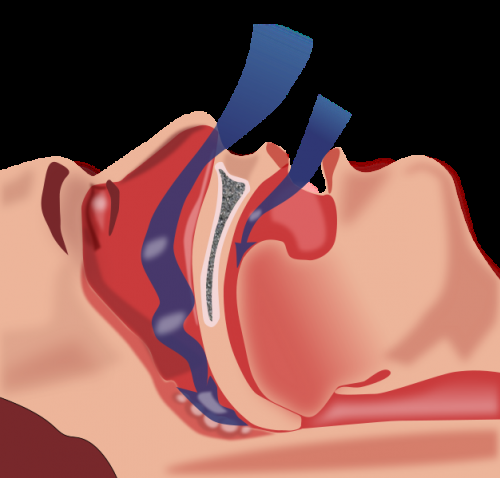Sleep apnea linked to poor aerobic fitness

People with moderate to severe obstructive sleep apnea may have an intrinsic inability to burn high amounts of oxygen during strenuous aerobic exercise, according to a new study led by researchers at University of California, San Diego School of Medicine.
The study, reported in the current issue of Journal of Clinical Sleep Medicine, shows that people with sleep apnea, in which breathing repeatedly starts and stops during slumber, have a lower peak oxygen uptake during aerobic activity than those who do not suffer from the sleep disorder.
People who suffer from apnea are more likely to be obese and thus would be expected to be less fit as well. The researchers, however, found that apnea patients had a reduced aerobic fitness, even compared with those of similar body mass indices.
"Encouraging patients to exercise more is part of the story, but that is not the whole story," said lead author Jeremy Beitler, MD, assistant clinical professor in pulmonary and critical care medicine. "We believe the sleep apnea itself causes structural changes in muscle that contributes to their difficulty exercising."
For the study, researchers performed sleep studies of men and women with a range of apnea symptoms. The sleep studies were performed to clinically evaluate the severity of the patients' apnea and to screen participants for sleep disorders besides apnea that could confound the study results.
Fifteen men and women with moderate to severe apnea and nineteen with mild or no apnea were then asked to pedal a stationary bike at incrementally harder resistance levels - similar to what a person would experience climbing up a progressively steeper hill. The participants were directed to pedal to exhaustion.
From the exercise test results, and previous measurements of participants' resting metabolic rates, scientists calculated each person's VO2 max - a measure of the maximum amount of oxygen the person can uptake during strenuous exercise - and its deviance from the expected VO2 max for a person of the same age, gender and body mass index.
After adjusting for baseline differences, scientists showed that people with sleep apnea had on average a 14 percent lower VO2 max than control subjects. Furthermore, the number of times a person stopped breathing, for 10-seconds or more, per hour of sleep, could predict 16 percent of the variability observed in the group's peak VO2.
"This is a big discrepancy," Beitler said.
Researchers believe that VO2 max measurements may be an early marker for those who are at higher risk of stroke and heart attack and that VO2 max measurements could motivate early interventions to treat apnea, which is underdiagnosed and often untreated.
More information: "Obstructive Sleep Apnea Is Associated with Impaired Exercise Capacity: A Cross-Sectional Study," www.aasmnet.org/JCSM/ViewAbstract.aspx?pid=29750
















